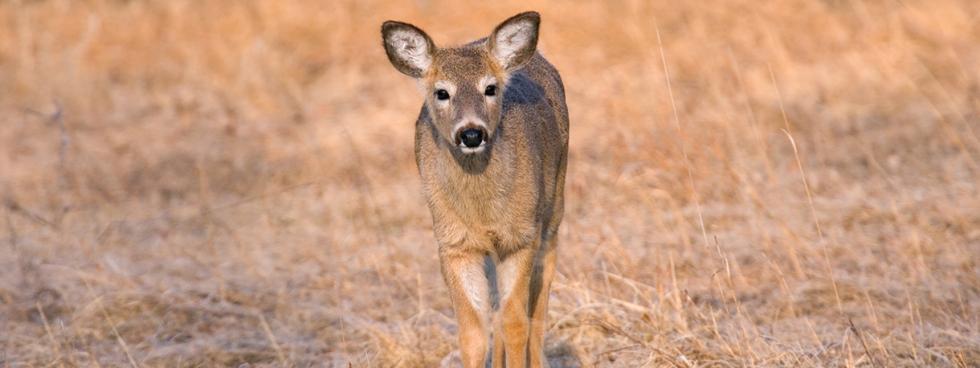
Wildlife Vet
Rachel Ruden had no doubt what her career trajectory was going to be – vet school followed by life as an equine veterinarian.
So what’s she doing in Ames, Iowa as a wildlife veterinarian for the Iowa Department of Natural Resources?
“I grew up riding horses and my plan was to be an equine vet,” Ruden said, “but when I was in undergraduate school at Cornell University, ’60 Minutes’ did a segment on the school’s elephant research program. “That was the tipping point. It got me out of the microcosm of the equine world and I became fascinated with wildlife.”
While a VDM student at the University of Pennsylvania, Ruden earned a fellowship with the U.S. Fish and Wildlife Service in Alaska. There she did a seabird population survey and previously she had completed additional research on infectious diseases at the University of Pittsburgh.
“Wildlife is one of our most precious resources,” she said.
In her role as the Iowa DNR wildlife veterinarian, Ruden isn’t delivering medical care to wildlife. Instead she is educating the general public as well as managing wildlife population health.
Chief among her concerns is chronic wasting disease, which affects free-ranging deer in Iowa. This contagious neurological disease results in abnormal behavior, loss of body condition, and ultimately death of the animal.
“Our goal is to maintain a healthy, sustainable deer population in the state,” Ruden said.
Eighty percent of her time is committed to the Iowa DNR while the reminder she serves as an affiliate assistant professor of veterinary diagnostic and production animal medicine in the College of Veterinary Medicine. At Iowa State she assists with wildlife cases submitted to the Veterinary Diagnostic Laboratory. She will also involve veterinary students in field-based wildlife disease investigations and collaborating with college faculty on wildlife-related research moving forward.
“Iowa is obviously a huge agricultural state,” she said, “and there are lots of diseases wildlife can carry that have consequences for the state’s agricultural animal industry.”
Ruden started in mid-July of this year. In the early days of her new job, she has become the DNR’s submissions point person as she facilitates what wildlife samples get tested. She hopes to work with the Veterinary Diagnostic Laboratory to build the number of assays available to more effectively track wildlife diseases in the state and handle the wildlife cases that come into the lab.
She will also begin to map out her role with Iowa State’s DVM students.
“The ultimate goal would be to take students out on morality calls, collect samples and look into developing a rotation for fourth-year veterinary students in the future,” Ruden said.
October 2019
